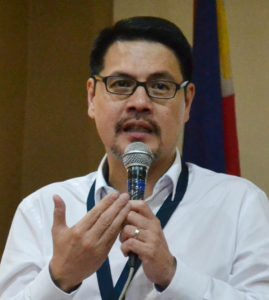 We have, in various public fora, discussed the benefits of the Customs Modernization and Tariff Act or CMTA (Philippine Republic Act 10863) in terms of trade facilitation and simplifying customs processes. In the coming weeks and months, we will write articles that will discuss various changes under the CMTA and their impact on the trading community. For this issue, we will expound on the concept of abandonment under the old and new rules, and the resulting benefit to importers.
We have, in various public fora, discussed the benefits of the Customs Modernization and Tariff Act or CMTA (Philippine Republic Act 10863) in terms of trade facilitation and simplifying customs processes. In the coming weeks and months, we will write articles that will discuss various changes under the CMTA and their impact on the trading community. For this issue, we will expound on the concept of abandonment under the old and new rules, and the resulting benefit to importers.
Abandonment – New Rights and Benefits
Under the old rules, goods deemed ‘abandoned’ automatically becomes government property. Under the new rules, abandoned goods are NOT government property and the importer has:
- the right to reclaim the goods after payment of the duty and tax, and all other charges and expenses; and
- the right over the proceeds of the sale, after deduction of any duty and tax, and all other charges and expenses.
Under the CMTA, importers should understand that even if there is failure to file the import entry within the prescribed period, the goods do not become government property and importers may (a) request for extension of the period to file the entry, (b) reclaim the goods, or (c) collect the proceeds if the goods have already been sold.
Old Rules (Section 1801, Tariff and Customs Code of the Philippines)
Under the old rules, there are three instances of abandonment:
- Express and written notice to abandon from the importer;
- Failure to file entry within 30 days from discharge from the vessel; and
- Failure to claim the importation after the filing of an import entry within 15 days from date of posting of Notice to Claim such importation.
When a shipment is declared “abandoned”, it becomes automatically property of government and may be disposed by donation or auction.
New Rules (Sections 1129 and 1130, CMTA)
Under the CMTA, goods are deemed abandoned under the following instances:
- Express and written notice to abandon from the importer;
- Failure to file entry within 15 days from discharge from the vessel or aircraft (note that the period may be extended for another 15 days upon request);
- Failure to pay the duties and taxes 15 days after final assessment;
- Failure to claim the importation within 30 days after payment; and
- Failure to claim the goods in customs bonded warehouse within the prescribed period.
Notice of abandonment shall be made by electronic notice or personal service. Expressly abandoned goods under paragraph (a) above shall ipso facto be deemed the property of the government.
For impliedly abandoned goods under paragraphs (b), (c), (d) and (e), an importer may reclaim the goods after compliance with legal requirements and payment of corresponding duties, taxes, and other charges within 30 days from lapse of the period to filed the import entry. When these goods are sold by customs by public auction, the proceeds of the sale, after deduction of duty and tax and all other charges, shall be turned over to persons entitled to receive them.
In other words, the balance of the proceeds shall be returned to the importer. In case there is no claimant, the balance shall be deposited to the Forfeiture Fund.
Forfeiture Funds (Section 1151, CMTA)
All proceeds from public auction sales, after deduction of the charges and expenses and subject to the claim of the owner or importer of an impliedly abandoned goods as discussed above, shall be deposited in an account to be known as Forfeiture Fund.
The fund shall be managed by the Bureau of Customs and shall be used for the following:
- outsource the management of the inventory, safekeeping, maintenance and sale of abandoned and forfeited goods;
- facilitate customs seizure, abandonment and forfeiture proceedings and the disposition of goods;
- enhance customs intelligence and enforcement capability; and
- support the modernization program, and other operational efficiency and trade facilitation initiatives.
The author is an international trade, indirect tax (customs) and supply chain expert. He provides advisory and training service to most of the top corporations and industry associations. For questions, please email him at agatonuvero@customstrade.asia or agatonuvero@yahoo.com.












